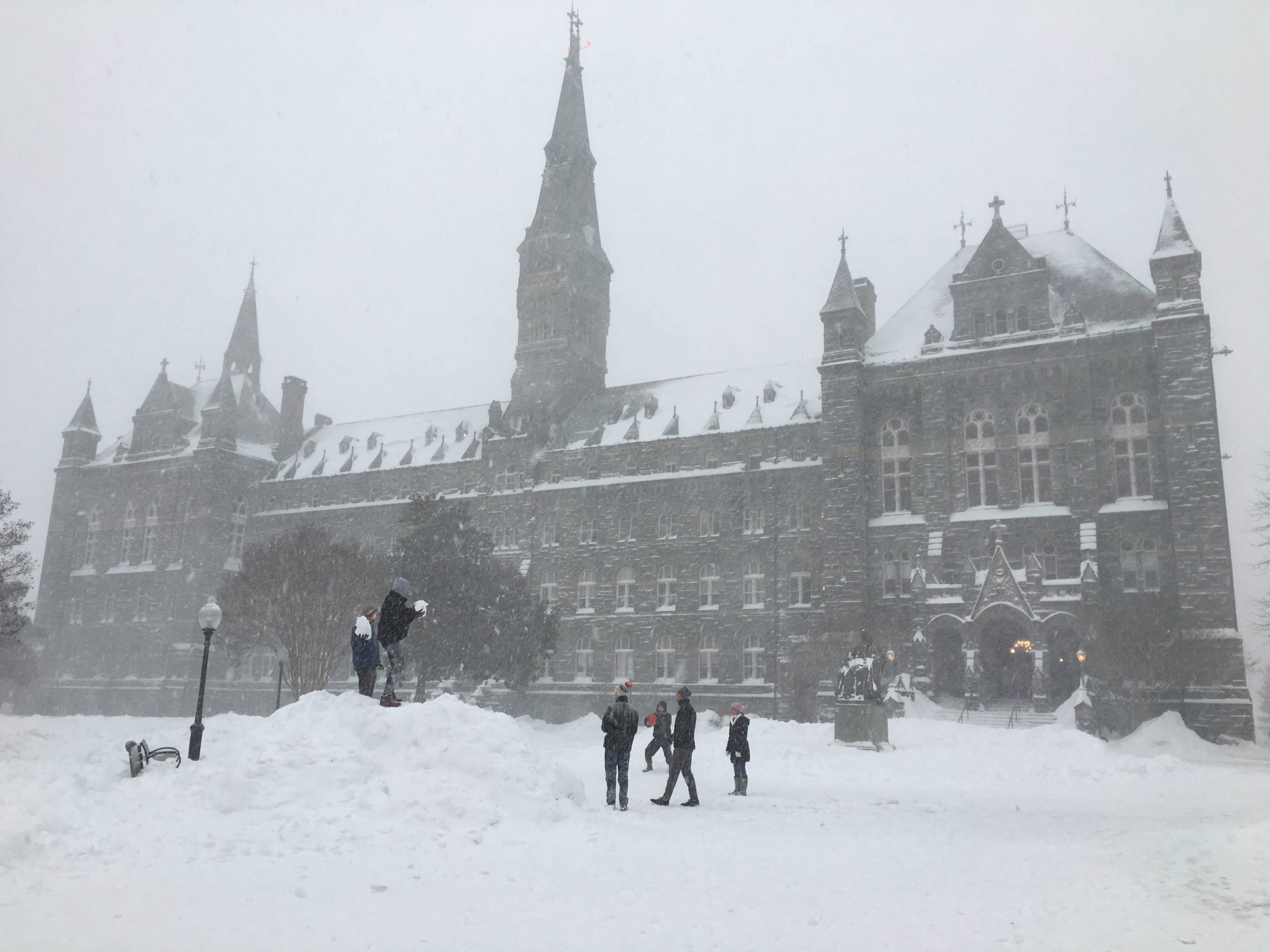This weekend, in light of dangerous roads and a closed Metro system, dining and facilities employees were given a choice: stay overnight on campus with compensation for meals, but no overtime wages, or leave for home with no pay for the weekend. Of those who stayed, supervisors, contractors and Aramark employees were offered rooms in the Leavey Hotel or Rosslyn Marriott, while others were given cots, and some slept on the floors and benches of university buildings.
As D.C. Mayor Muriel Bowser strongly advised residents to stay off the roads and Metro services were shut down from Friday night into Monday morning, traveling to and from home was not feasible for most campus workers.
“We were given an option,” said a Leo’s employee. “They didn’t tell us ‘you have to stay.’ But you stay and you work or you go home and don’t. There was no extra compensation.”
According to one facilities worker, employees were given a meal ticket for Epicurean and Company every eight hours during the day and breaks every five hours.
Finding a proper place to sleep troubled many employees, due to a shortage of cots supplied by the university. A facilities worker said that while her breaks and meals were sufficient, she had to sleep on a bench in the Davis Performing Arts Center at one point.
One employee said, “[for overnight stays,] the stockroom generally has an insufficient number of cots, so they hand you a trash bag with a blanket, sheet, and pillow, and then they tell you to find a place to stay.”
Another worker said that she had to sleep on the floor of the Hariri Building, where the heat was shut off at certain intervals.
“It was very uncomfortable and ridiculous, especially when we had to get up and couldn’t sleep because of the cold of the building,” she said. “We had no place to clean up, either. No place to take showers or baths. They paid us well, but we deserve a nice place to rest when we’re not working.”
A worker in the residential halls noted that though the contractors the university brought in for snow removal were doing the same work as the regular university facilities employees, the contractors were all given hotel rooms to stay in during the weekend.
A grounds worker who has worked at Georgetown for seventeen years remarked that employees were generally encouraged not to discuss these conditions with students.
“You shouldn’t be made to feel like there should be any repercussions for talking about the wide range of treatment [between managers and staff],” he said. “But it’s gotten to the point now that is is the worst it has ever been.”
As for Leo’s workers, the hotel arrangement was governed by the employees’ union contract, wrote Joelle Wiese, Associate Vice President of Auxiliary Business Services, in an e-mail to the Voice.
“We happily pay for their hotel and meals,” Wiese wrote. “We are grateful that they are so dedicated to the students during bad weather events to provide food service.”
One facilities worker said that the situation is a continuation of a pattern. In past times of need, supervisors were put up in hotels, while regular workers were given only the essentials.
“Georgetown used to be a beautiful place to work,” she said. “Now I just can’t wait to get out.”






a terrible piece of journalism
You can’t just write “a terrible piece of journalism” and not give an argument why. That’s a terrible piece of criticism.
Actually a great piece of journalism. Excellent insight.
Thank you for covering a very important story. The fact that only certain employees on the Hilltop have extra protection in their union contract speaks to the need to have union contracts that recognize and protect worker rights. Even in 2016, unions can offer important protections.